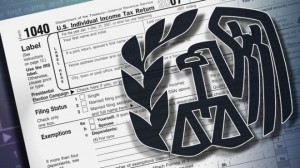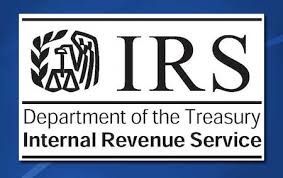
Category Archives: Tax Facts & Tips
How to Deduct Expenses at the NAFCC Conference in Orlando, Florida

Follow IRS rules about business travel and deductions and enjoy the trip!
Are you planning to attend the National Association for Family Child Care Conference in Orlando, Florida on July 11-12, 2014? The program guide gives you all the details about workshops and seminars that will be taking place, including valuable business practices for record keeping and general business administration of your child care business.
WHAT’S EVEN BETTER – YOU HAVE DEDUCTIONS!
Want to read more? Click Here
DID YOU KNOW that your vacation home can be a tax deduction?
 Just make sure you don’t use it for client or business entertainment.
Just make sure you don’t use it for client or business entertainment.
The Bradford Tax Institute had a great piece about how you can actually deduct your vacation home – as long as you don’t break the rule. The rule is – it can’t be used for your business client’s (or their family’s) entertainment.
BTI used the scenario – Man owns three-acre beachfront property. While he is there, he met with his investment advisors, current and prospective clients and met with salesmen, trainees and other partners in his business.
The costs associated with these meetings are all legitimate deductions and valid business activities, so where did he go wrong?
He permitted his clients to bring their family to the property, while they were in meetings. The court ruled that since the *family members* did not attend the business meetings – that meant they were entertaining themselves, such as playing on the beach or going out at night and partying.
As a result, the court ruled that the beach home was a NONDEDUCTIBLE ENTERTAINMENT FACILITY. (See http://www.law.cornell.edu/uscode/text/26/274 )
The Bradford Tax Institute used the following example: If you use your vacation home 11 days for business meetings with your employees (or partners, etc.), 14 days for business lodging, and 8 days for personal purposes, that gives you 76% business use and 24% personal use. Formula: 25 business days (M-F) divided by 33 days = 76%. You can deduct 76% of the operating costs and depreciation of your vacation home.
Story source: Bradford Tax Institute Tax Reduction Letter
Medical and Dental Expense Deduction – FTB CA
 Federal changed the allowable medical and dental expense deduction amount for federal purposes. A deduction is allowed for unreimbursed allowable medical and dental expenses that exceed 10 percent of federal adjusted gross income (AGI) California allows a deduction for medical and dental expenses that exceed 7.5 percent of federal AGI. For more information, go to ftb.ca.gov and search for Schedule CA 540.
Federal changed the allowable medical and dental expense deduction amount for federal purposes. A deduction is allowed for unreimbursed allowable medical and dental expenses that exceed 10 percent of federal adjusted gross income (AGI) California allows a deduction for medical and dental expenses that exceed 7.5 percent of federal AGI. For more information, go to ftb.ca.gov and search for Schedule CA 540.
TRANSLATION: If you have medical and dental expenses that exceed the 7.5% threshold in California, you will be able to claim these expenses under California Tax Law even if you don’t have enough to meet the 10% federal threshold.
Tax information is not tax advice. If you need your questions answered, call 619-589-8680 for an appointment. Pat Michael and his team at US-TaxLaws.com is your best source for professional tax preparation services with more than 30 years experience and thousands of satisfied clients.
Personal Tax Preparation Business Tax Preparation Partnership Tax Preparation Corporate Tax Preparation Incorporation-Choice of Entity Business Support Services Corporate Compliance Audit Representation Retirement Tax Planning Wills & Trusts Estate Planning Bookkeeping Payroll
How Safe Are Your Tax Records?
PROTECT YOUR RECORDS … FOR PEACE OF MIND
If you are using electronic records – stored remotely and retrievable – great! But what about those who still keep paper records in a home-office, garage, basement, or attic? Well, if you are going to keep your tax records in your home, make sure they won’t be destroyed in an unexpected catastrophe like a fire or flood. While the IRS isn’t heartless … if they come looking for your records, you will wish you have kept them safer. Continue reading
How Can You Avoid the New 3.8 % Obamacare Tax
A TAX BY WHATEVER NAME IS STILL PAINFUL
 Whatever the name, taxes can be painful and the new tax is known by a few: the Affordable Care Act tax, the Obamacare tax, the Net Investment Income Tax (NIIT), or Medicare Tax. Most media (and even the President) is using the name “Obamacare Tax”, so we will use that name for this writing. For a full Q&A on the new tax, please see our Q&A on NIIT aka Obamacare Tax.
Whatever the name, taxes can be painful and the new tax is known by a few: the Affordable Care Act tax, the Obamacare tax, the Net Investment Income Tax (NIIT), or Medicare Tax. Most media (and even the President) is using the name “Obamacare Tax”, so we will use that name for this writing. For a full Q&A on the new tax, please see our Q&A on NIIT aka Obamacare Tax.
This is a tax on UNEARNED INCOME. Unearned income is defined as income derived from sources other than employment, such as interest and dividends from investments, or from rental property (source: investorwords.com). The types of income that will be affected by the new Obamacare tax are. Continue reading
3 Tax Tips You Need to Know Heading Into 2014
Countdown to the New Year.
 The budget deal that Congress and President Obama struck at the beginning of the year to avoid the fiscal cliff resulted in seven tax increases. If you throw in the six tax hikes that are part of Obamacare, that means there are 13 new taxes that may have hit you in 2013.
The budget deal that Congress and President Obama struck at the beginning of the year to avoid the fiscal cliff resulted in seven tax increases. If you throw in the six tax hikes that are part of Obamacare, that means there are 13 new taxes that may have hit you in 2013.
1.) The biggest potential taxes for wage earners include: Continue reading
January Brings Important Tax Information
DO YOU KNOW WHAT TO LOOK FOR?
 The IRS receives copy of all your tax-related forms. They are compared to your return. You can’t miss any of these documents. Watch the mail.
The IRS receives copy of all your tax-related forms. They are compared to your return. You can’t miss any of these documents. Watch the mail.
Envelopes will have “IMPORTANT TAX INFORMATION ENCLOSED” clearly printed. You need those.
- 1099’s. You will either get 1099-INT or 1099-DIV for any account paying interest or dividends. Keep them all together. Make sure you have one for each account.
- Real estate sales are on 1099-S.
- Stock sales, 1099-B.
- Pensions or IRAs, 1099-R. Continue reading
Interest Rates Remain the Same for the First Quarter of 2014
For taxpayers other than corporations, the overpayment and underpayment rate is the federal short-term rate plus 3 percentage points.

IR-2013-96, Dec. 9, 2013
WASHINGTON ― The Internal Revenue Service today announced that interest rates will remain the same for the calendar quarter beginning Jan. 1, 2014. The rates will be:
- three (3) percent for overpayments [two (2) percent in the case of a corporation];
- three (3) percent for underpayments;
- five (5) percent for large corporate underpayments; and
- one-half (0.5) percent for the portion of a corporate overpayment exceeding $10,000.
Under the Internal Revenue Code, the rate of interest is determined on a quarterly basis. For taxpayers other than corporations, the overpayment and underpayment rate is the federal short-term rate plus 3 percentage points.
Generally, in the case of a corporation, the underpayment rate is the federal short-term rate plus 3 percentage points and the overpayment rate is the federal short-term rate plus 2 percentage points. The rate for large corporate underpayments is the federal short-term rate plus 5 percentage points. The rate on the portion of a corporate overpayment of tax exceeding $10,000 for a taxable period is the federal short-term rate plus one-half (0.5) of a percentage point.
The interest rates announced today are computed from the federal short-term rate determined during Oct. 2013 to take effect Nov. 1, 2013, based on daily compounding.
Revenue Ruling 2013-25 announcing the quarterly rates will be published in Internal Revenue Bulletin 2013-52, dated Dec. 23, 2013.
Troubled or Modified Loans?
If you had a loan modified, or lost a property in foreclosure or short sale in 2013, I will need to have all the details. You can’t put behind you until we deal with the tax issues.
For instance, you might have income from cancellation of part of the mortgage. Look for Forms 1099-A and/or 1099-C in the mail. I must see these.
What I also need from you are all the details surrounding what happened. I need the history of all the loans associated with the property. It will help to see mortgage statements. Many times these cases involve more than simply tax law, so please be as thorough as possible.
If you have any questions – don’t hesitate to call. The number is 619-589-8680.
Mileage Deductions

For 2013 you get 56.5¢ for each business mile (keep your logs daily) . While employees can’t deduct driving to work, look at visits to clients, extra meetings, errands or shopping for supplies. Business owners – especially child care providers – have the same and more. To learn more, click here.
Family member in College? Need Tax Breaks?
There are three different tax breaks that might help you.
- Tuition and Fees. Required document is 1098-T. In addition to the tuition and fees, I will need the name, address and Tax ID number of the school. Unfortunately, the student is the one who gets the 1098-T – not the parent! If they lost it – they will need to go to www.1098T.com.
- Other expenses. If your student doesn’t already have a degree you can deduct books, supplies, special software, maybe even their computer. Be sure to get all related costs from your student.
- College Saving Plans. Did you use a Section 529 Plan or a “Coverdell Savings Accounts” to help pay for the costs? If so, you will be receiving IRS Form 1099-Q. Your money grew – tax free. We will need to show that the funds were used for “qualified expenses” otherwise you will be taxed now. You also might subject to a penalty – so your tax preparer will need records of any and all costs.
- Youngster’s Tax Returns. If the student is your child, I can run what is called a “Kiddie Tax”. Make sure your child does not file their own return until we’ve gone over the rules.
Source: Tax News & Tips, Year End 2013
Use of Home For Two or More Businesses ?
Did you know the same home office can be the principal place of business for two or more separate business activities?
According to Publication 587, Cat. No. 15154T : January 5, 2013 – yes it can be, but whether it qualifies as the principal place of business for two or more businesses is evaluated by a set of criteria:
- The principal place of business for one or more of your trades or businesses,
- As a place to meet or deal with patients, clients, or customers in the normal course of one or more of your trades or businesses,
- If your home office is a separate structure, in connection with one or more of your trades or businesses. Continue reading
Dec 2013 – April 2014 Tax Dates to Keep In Mind
YOUR TAX CALENDAR
December 31
- A check mailed on December 31 counts for 2013. Last chance for deductions!
- State estimated tax paid December 31 is deductible on 2013 Federal Return
January 15
- 4th quarter estimated tax payments due.
February 1
- Employers – Quarterly payroll & FUTA due (Federal Unemployment Tax).
- W-2s and 1099s due to recipients.
March 3
- W-2s and most 1099s due to IRS.
April 15
- 2103 Tax Returns due.
- Last day for 2013 IRA contributions.
Audit Alert #2 – Letter from the IRS?
What to do when you get a letter from the IRS.
 You’ve gotten a letter from the IRS. Don’t panic.
You’ve gotten a letter from the IRS. Don’t panic.
Pat Michael, EA, discusses what you may be facing, and the actions you will need to take. Read the full post here.
Audit Alert #1 – Trip Wire – Mileage Logs
Wondering why you got a letter from the IRS? Could it be your mileage log? The IRS Is a stickler for details when it comes to mileage logs. Did you make sure that your mileage log reflected the day-to-day use and associated expenses for your vehicle(s)? Read our blog on “What is the most common trip wire to trigger an audit?”
Pay-It-Forward Tax-Saving Moves for 2013!
What Tax Moves Can You Make In December?
Identify and pre-pay deductible expenditures
In our last “tax move” post, we suggested taxpayers look at all the options they have for lowering their tax bill due in 2014. Here are some more possibilities:
January house payment – Prepaying your mortgage will give you 12 months of deductible interest. The same for a vacation home. Continue reading
The IRS Keeps Files, but …
Moves To Lower Your 2013 Tax Bill
 TAX MOVES TO MAKE BEFORE CHRISTMAS.
TAX MOVES TO MAKE BEFORE CHRISTMAS.
Ways to reduce your 2013 tax bill.
December 31 is approaching quickly – and there are some things you can do to lower your tax bill. We encourage our clients to come in for a review, especially if there are life-situation changes. Did they marry or divorce? Is there are new child? Is there unscheduled income, or benefits. We want to look at that before the close of the year.
As part of our updates on the laws that are changing, we are sharing valuable articles for your convenience.
This article is the first of two we will bring you from one of MarketWatch of the Wall Street Journal.

